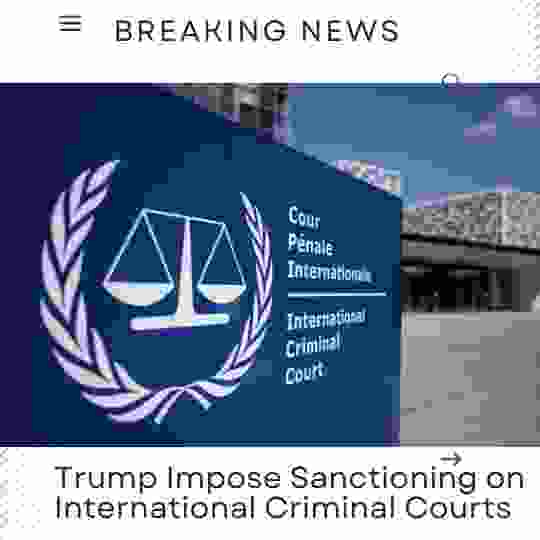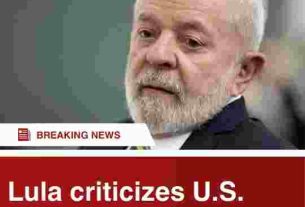In a move stirring controversy on the international stage, U.S. President Donald Trump has authorized economic and travel sanctions targeting individuals involved in International Criminal Court (ICC) investigations of U.S. citizens and allies, including Israel. The decision, announced on Thursday, coincided with a visit to Washington by Israeli Prime Minister Benjamin Netanyahu, who is under ICC scrutiny over alleged war crimes during the Gaza conflict.
The sanctions specifically target staff working on ICC investigations—a measure that critics argue interferes with the Court’s ability to independently pursue cases involving war crimes, crimes against humanity, genocide, and the crime of aggression. Supporters of the action, however, contend that it is a justified response to what they perceive as biased judicial processes against U.S. citizens and its allies.
In a statement released on Friday, the ICC defended its personnel and reaffirmed its commitment to justice. “The court stands firmly by its personnel and pledges to continue providing justice and hope to millions of innocent victims of atrocities across the world, in all situations before it,” the statement read. The ICC also called on its 125 member states to back its efforts, underscoring the importance of protecting its independence and operational integrity.
European leaders were quick to voice their concerns regarding the sanctions. Antonio Costa, President of the European Council of EU leaders, took to the social media platform Bluesky, warning that “sanctioning the ICC threatens the Court’s independence and undermines the international criminal justice system as a whole.” The Netherlands—the host nation of the ICC in The Hague—and European Commission chief Ursula von der Leyen similarly expressed regret over the decision, emphasizing the potential long-term damage to international legal cooperation.
The timing of Trump’s move, amid Netanyahu’s high-profile Washington visit, has added further complexity to an already volatile geopolitical landscape. Netanyahu, who remains a contentious figure due to his legal challenges related to the Gaza conflict, is now positioned at the heart of a diplomatic tug-of-war between U.S. policy and international judicial institutions.
As debates intensify over the implications of these sanctions, questions linger about the future role of international legal bodies in holding powerful nations and their allies accountable. While some domestic voices in the U.S. applaud the move as a bold stance against perceived judicial overreach, international reactions remain sharply divided, with many fearing that the sanctions could set a dangerous precedent for global justice.
For further details and ongoing updates on this developing today story on Trump imposes sanctions on International Criminal Court.


